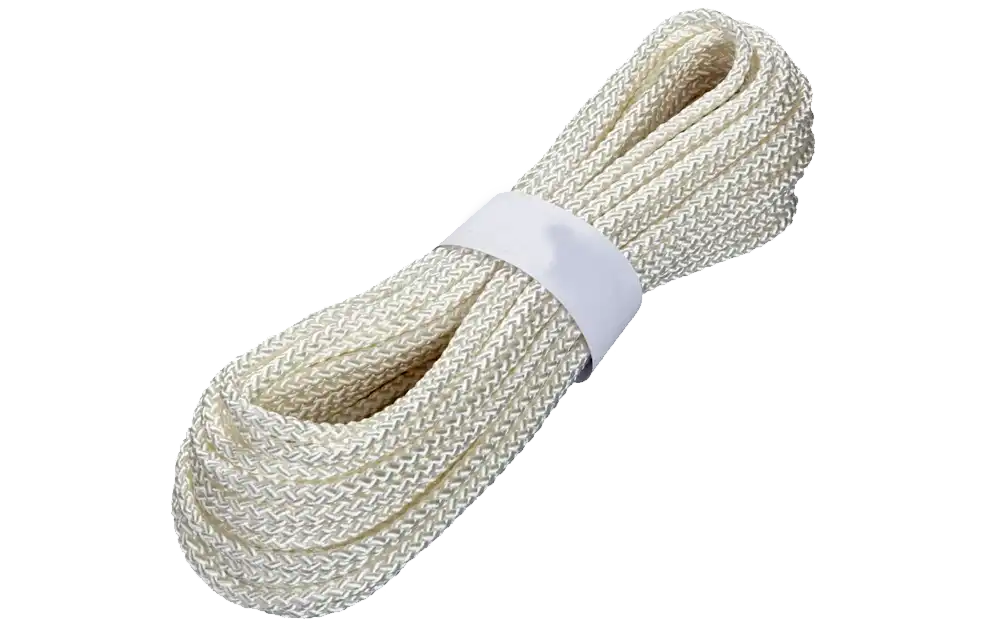Refractory rope, also known as ceramic fiber rope, is a versatile insulation material widely used in industrial applications due to its exceptional thermal resistance, chemical stability, and asbestos-free composition. Its ability to withstand extreme temperatures and harsh environments makes it an indispensable component for various industrial processes.
Types of Refractory Rope
Refractory ropes are broadly classified into two categories based on their manufacturing method:
Braided Refractory Rope
This type consists of ceramic fibers encased in a woven jacket made of fiberglass or stainless steel wire, offering enhanced strength and durability.
Twisted Refractory Rope
This type is constructed by twisting ceramic fiber yarn and reinforcing it with fiberglass or stainless steel wire, providing flexibility and ease of installation.
Construction of Refractory Rope
Refractory ropes are predominantly composed of alumina-silica ceramic fibers, free of harmful asbestos. These fibers exhibit remarkable thermal resistance, capable of withstanding temperatures up to 1260°C (2300°F). Additionally, refractory ropes incorporate reinforcing materials like Inconel wire or continuous fiberglass strands to enhance their strength and longevity.
Key Properties of Refractory Rope
Refractory ropes stand out due to their unique properties that make them suitable for demanding industrial applications:
- High Thermal Resistance: They can withstand extreme temperatures, making them ideal for insulating high-heat environments.
- Chemical Stability: They are resistant to corrosive chemicals, ensuring long-lasting performance in harsh conditions.
- Asbestos-Free: They are free from asbestos, posing no health hazards and complying with safety regulations.
- Excellent Thermal Insulation: They effectively prevent heat loss, conserving energy and reducing operational costs.
- Lightweight: They are relatively lightweight, simplifying handling and installation.
Applications of Refractory Rope
Refractory ropes find extensive applications across various industries, including:
- Insulating Inspection Doors: They effectively seal and insulate inspection doors on furnaces and boilers, minimizing heat loss and maintaining temperature uniformity.
- Sealing Flanges and Gaskets: They provide a tight seal for flanges and gaskets in pipes and other industrial equipment, preventing leaks and ensuring system integrity.
- Insulating Expansion Joints: They effectively insulate expansion joints in furnaces and kilns, accommodating thermal movement while preventing heat loss.
- Pipe Insulation: They wrap around pipes in marine generators, boilers, and furnaces, providing thermal insulation and protecting personnel from burns.
- Asbestos Replacement: They serve as a safe and effective replacement for asbestos in numerous applications, eliminating potential health risks.
Technical Specifications of Refractory Rope
The technical specifications of refractory ropes vary depending on their type and specific application. However, they are generally available in various diameters and can be customized to desired lengths.

Conclusion
Refractory rope, particularly the type described in this article, stands out as a high-performance thermal insulation material suitable for a wide range of industrial applications. Its exceptional resistance to extreme temperatures, chemical stability, and asbestos-free composition make it an ideal choice for various industries.


Leave a Reply